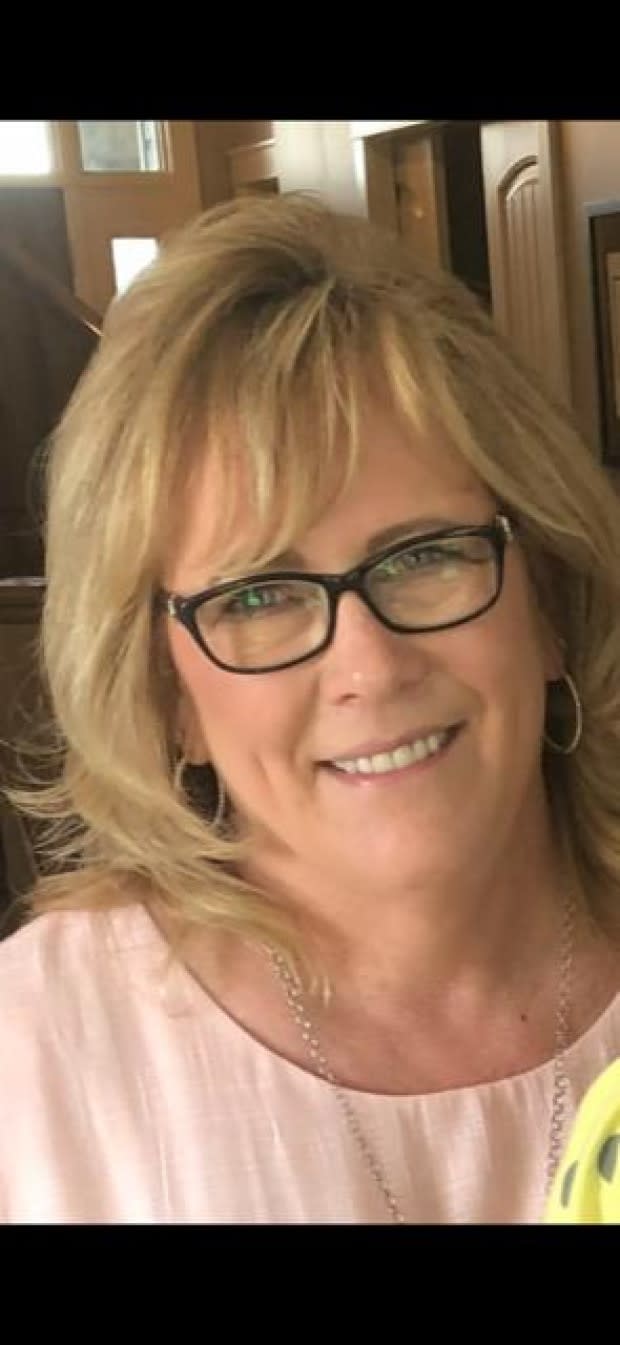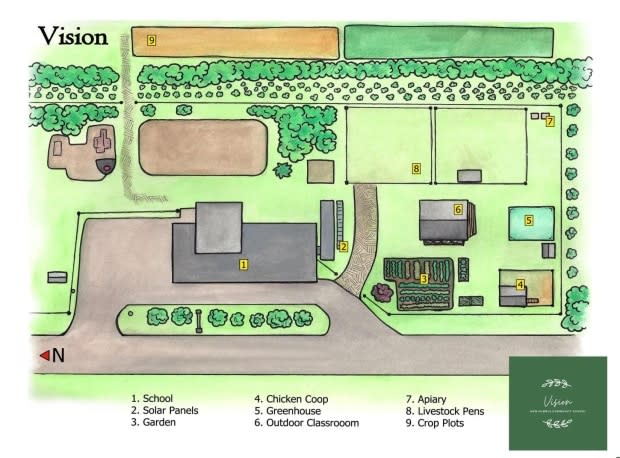First new charter school in 13 years could open in Alberta
Alberta is poised to get its first new charter school in 13 years.
A group of families living in the Calmar area have received the education minister's conditional permission to open a charter school that focuses on agriculture and stewardship.
Slated to open in September 2021, the group aims to operate in the New Humble Centre School building, about 25 kilometres west of Leduc. The Black Gold public school division shuttered the rural elementary school last June.
The development comes just as an organization of public school boards calls for Alberta's auditor general to look at whether the province's charter schools have fulfilled their intended purpose.
Kristen Kuhn, an interim board member of the new charter school who has been working on its establishment, says the goal is to teach children that agriculture is about more than raising chickens and driving a tractor.
The organizers' goal is to open New Humble Community School with a K-6 program that offers an outdoor classroom with a greenhouse, chicken coop, apiary and, eventually, test plots in a nearby field.
The school would show students how they can use curriculum outcomes in agriculture. Science helps farmer maximize crops and math is required to calculate crop yields, for example.
"It's kind of our hope and our dream in the back of our minds is that this is a way that rural schools in Alberta can continue to exist and continue to thrive and grow," Kuhn said.
At first, people in the community tried to keep the public school open. When the board voted to close the school due to low enrolment, parents then looked at other options, she said.
Tthey decided applying to open a charter school was the best fit. Last year, the United Conservative Party government lifted the 15-school cap on the number of charters allowed in the province. That limit has been in place since Ralph Klein's government introduced charters in 1994.
A new Choice in Education Act also took effect this September, which simplified the process for people applying to create a charter school.

Kuhn said the New Humble charter would like to co-operate with nearby schools, potentially organizing visits to their outdoor classroom, or becoming a place where teachers could train in delivering lessons with a focus on agriculture.
"I believe so strongly in the value and the importance of public education," Kuhn said in an interview. "We're not trying to be in opposition to public schools. We don't want this to be a competition between our school versus another school."
Alberta currently has nearly 10,000 students attending 13 charter schools, most of which are in Edmonton and Calgary. Alberta is the only Canadian province with charter schools.
Charter schools not fulfilling original purpose, trustees' group says
A group of public school trustees said the auditor general should review charter schools before the minister approves any more applications.
Outside of an annual review of charters' financial statements, Alberta's auditor hasn't looked closely at charter schools since 2001, spokesperson Val Mellesmoen said in an email. No one has identified significant risks or issues with them, she said.
A 2007 Alberta Education study and discussion paper said charter schools had led to more choices for parents, but mainly in large cities. Although charter school students had better outcomes, the paper said the vision for charters as centres of innovation to be shared with other schools had "largely not been realized."

Cathy Hogg, president of the Public School Boards' Association of Alberta, questions whether charter schools are the incubators for innovation they were supposed to become, and whether their programs are frequently shared and replicated in public schools.
She wants the auditor to review the educational, administrative and financial benefits of charter schools.
"We believe it's time to have a serious discussion about the effectiveness of charter schools given that they are funded by taxpayer dollars and the fact that we believe they have not been nearly as effective as originally intended," Hogg said in an interview.
The association commissioned a University of Alberta PhD candidate to prepare a research paper on the history and influence of the province's charter schools.
Researcher Curtis Riep concludes Alberta can expect inefficiencies and redundancies in the publicly funded education system now that the government has lifted the cap on charters.
There is "far from a guarantee" that charter schools will spur innovation, he writes, saying the move is more geared to adding market forces to the education system.
Hogg said Alberta's recent regulatory changes could lead to an "alarming" move toward the U.S. system, where charter schools compete for students, programs are duplicated and children are often segregated by race and socioeconomic status.
It's a duplicate system Alberta can't afford, she said.
Charter proponents dismiss association's concerns
An advocacy group for Alberta charter schools said the paper contains "alarmist dogma" unlikely to manifest in the province.
Ron Koper, board chair of the Association of Alberta Public Charter Schools (TAAPCS), said there is no mad rush from people to open up a network of new charters to compete with public schools.
The cap lifted a year ago, and New Humble is the only potential new one, he said.
The press secretary for Education Minister Adriana LaGrange said there are no other new charter applications before her.
Koper said charter schools have prompted public school boards — particularly in Edmonton — to offer unique programs families were seeking.
"What's important is that the right decision gets made for education in Alberta," he said. "Frankly, sometimes that goes in the direction of public charters and sometimes it doesn't."
He said independent academics have already studied Alberta's charter school network. A 2015 study concluded, among other things, that the now-lifted cap prevented charters from competing with the public system.
Colin Aitchison, LaGrange's press secretary, rejected the suggestion charter schools are duplicating public services, adding they are required to have programs that differs from public schools.
He said a Canadian Taxpayers' Federation report found charters operate more efficiently and students had better results.
"Albertans made their opinion on this matter extremely clear when they elected us in April 2019," Aitchison said.
Charter schools are not required to accept students with disabilities. Some public education advocates argue that fees and long wait lists make charters inaccessible and not truly "public."


